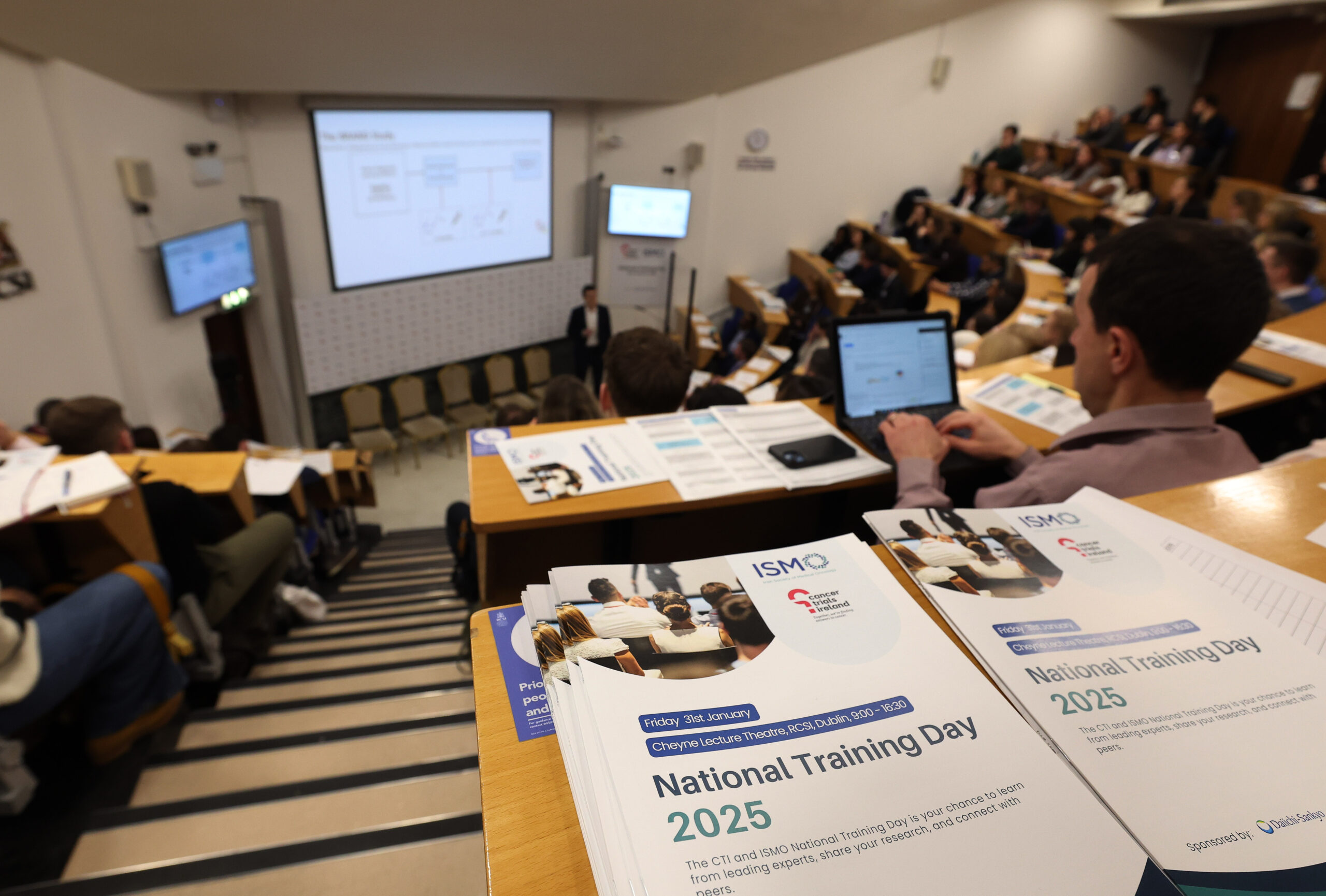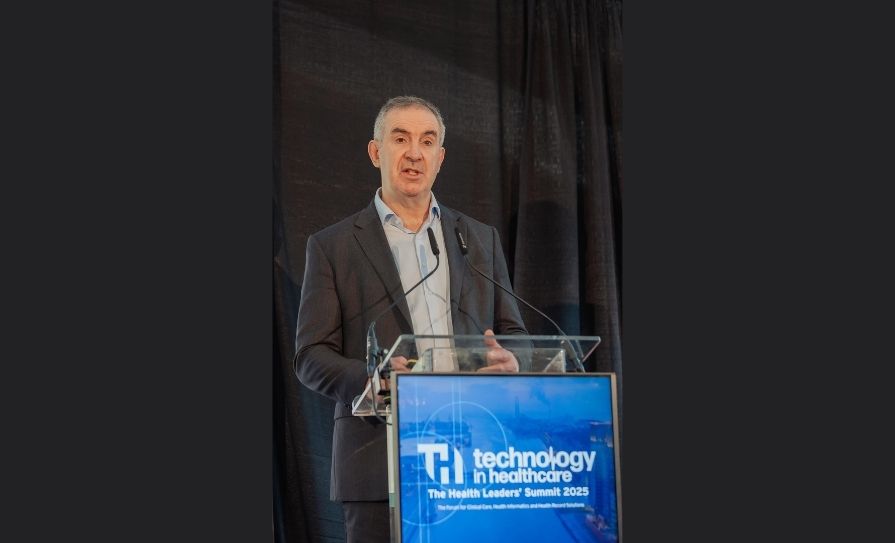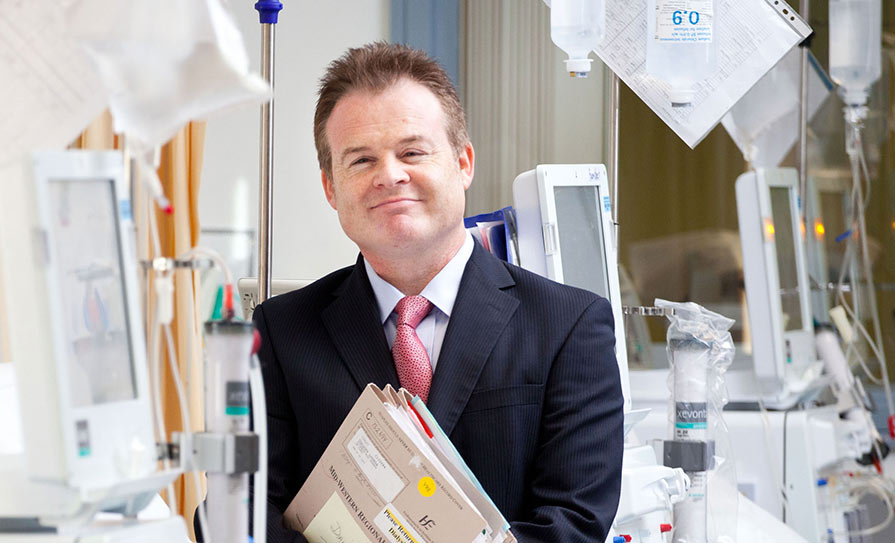The new dedicated cataract theatres in Nenagh and Dublin are having a significant impact on cataract waiting lists and are providing a more comfortable experience for elderly patients, the 2019 ICO Conference heard.
Both units have reduced their waiting lists to below six months, and are now looking to take patients from other hospitals shortly.
Miss Marie Hickey-Dwyer, Consultant Ophthalmic Surgeon at University Hospital Limerick, told MI how the unit in Nenagh Hospital, established last year, has gone from operating one day a week to four days, with hopes to have it running five days a week following the hiring of an additional surgeon.
Prof Billy Power, Consultant Ophthalmic Surgeon, RVEEH), Dublin, and HSE Clinical Lead for Ophthalmology explained how the RVEEH established its own dedicated cataract theatre in 2017, with assistance from the National Treatment Purchase Fund (NTPF) finances, but acknowledged that there was a significant need for at least one other such theatre in the South of the country, where patients remain waiting over two years, and frequently longer, for cataract surgery.
One doctor speaking from the audience voiced her frustration that elderly patients in her region were continuing to have to access cataract operations in Belfast and the UK under the Cross-Border Health Care Directive due to unacceptably long waiting times.
In addition, a further challenge is to tackle initial outpatient appointment waiting times, Prof Power said, saying it was completely unfair that patients diagnosed with cataracts by their GP have to wait long times for an initial outpatient appointment for diagnosis by a consultant and then be put on a surgical cataract waiting list while their vision deteriorates. He said the Clinical Programme is working with the HSE and NTPF to develop a plan so that these patients will go directly to cataract assessment clinics and onto surgical lists, thereby reducing their overall waiting times.
The final session of the conference was a symposium on ‘Lean Thinking in Cataract Delivery — An Integrated Care Model’ featuring expert speakers Mr Paul Mullaney, Consultant Ophthalmic Surgeon, University Hospital Sligo, Mr Barry Quill, Consultant Ophthalmic Surgeon. RVEEH, Dublin, session Chair Prof Power, and Mr Paul Barrington Chell, Consultant Ophthalmic Surgeon, Worcester Royal Hospital, Worchester, UK.
Mr Mullaney detailed the innovative work being carried out in Sligo University Hospital to reduce waiting times and maximise the numbers of patients being operated on, including having a patient booking system that can fill up any last-minute surgical slots with suitable patients on standby.
Mr Quill noted that thanks to its dedicated cataract theatre, the RVEEH carried out 1,600-1,700 more cataract operations last year than it previously would have done and was aiming to get that number to over 2,000 this year. Now that the RVEEH dedicated theatre is working successfully and has reduced waiting times and has spare capacity, Mr Quill emphasised the need for the implementation of the recommendations of the Primary Eye Care Services Review, so cataract patients can be preoperatively assessed in the community and are then ready to be directly referred to the RVEEH for surgery.
He also confirmed to MI that the RVEEH has begun working with other hospitals with long cataract waiting lists, including the Mater Hospital, to take some of their patients onto its lists for surgery.
Mr Chell gave a detailed presentation on how to set up and run a highly efficient, safe and ‘lean’ cataract unit that maximises its resources and keeps waiting lists at a minimum.
He highlighted the importance of risk management strategies in the success of lean services, having protocols and systems firmly embedded, clear lines of responsibility, no interruptions of the surgeons, and tips like “triple-checking of intraocular lenses and no lens decisions on the day, so all of these things create a high-volume, very, very low-complication rate system that is low risk”.
Speaking to MI, Mr Chell emphasised the need for strong working relationships within the multidisciplinary team to ensure optimal outcomes. “You need to have teams that have the same staff work together regularly,” he said.












Leave a Reply
You must be logged in to post a comment.